Your website is more than just a digital business card. It’s your online storefront, your primary sales tool, and often the first impression you make on potential customers. Just like a physical store needs regular cleaning, restocking, and occasional repairs to stay inviting and functional, your website requires consistent maintenance to support your brand’s long term growth. Ignoring it is like leaving your front door broken; eventually, it will cause problems you can’t ignore.
This post will explore why website maintenance is not just a technical chore but a vital business strategy. We will cover how it impacts security, user experience, search engine rankings, and ultimately, your bottom line. You will walk away with a clear understanding of what website maintenance involves and practical steps you can take to protect your digital investment.
Protect Your Digital Home with Strong Security
Imagine a customer walking into your store only to find the locks broken and the inventory in disarray. That’s what a security breach on your website feels like to your visitors. Cyber threats are a constant risk, with hackers always looking for vulnerabilities to exploit.
The Real Cost of a Security Breach
For a small or growing business, a single security breach can be devastating. It can lead to stolen customer data, which erodes trust and can result in significant legal fines. A hacked website often gets blacklisted by search engines like Google, causing your online presence to vanish overnight. The recovery process is not only expensive but also time consuming, pulling your focus away from growing your business.
A real world example is the widespread impact of outdated plugins. Many businesses use content management systems like WordPress, which rely on plugins for extra features. When these plugins are not updated, they become open doors for hackers. Regular maintenance involves updating your core software, themes, and plugins to patch these security holes before they can be exploited. It also includes running regular security scans and creating backups of your site, giving you a safety net if the worst happens.
Enhance User Experience and Build Trust
A slow, buggy, or broken website is frustrating for users. People have little patience for poor performance. If your site takes too long to load or has broken links, visitors will leave and likely never return. This directly impacts your ability to convert visitors into customers.
First Impressions Matter Online
Think about how you use the web. Do you wait more than a few seconds for a page to load? Most people don’t. A smooth, fast, and intuitive website signals professionalism and reliability. It tells your visitors that you care about their experience.
Website maintenance plays a huge role in creating this positive experience. Key activities include:
- Optimizing Site Speed: Regularly compressing images, cleaning up your database, and using caching can dramatically improve how quickly your pages load.
- Fixing Broken Links: A 404 error page is a dead end for users. Consistent checks for and fixing of broken internal and external links keep visitors navigating smoothly through your content.
- Ensuring Mobile Friendliness: With more than half of all web traffic coming from mobile devices, ensuring your site looks and works great on a small screen is essential. We can help you with a responsive design audit.
By continuously improving the user experience, you not only keep visitors happy but also build brand loyalty. A great experience encourages repeat visits and positive word of mouth, which are invaluable for long term growth.
Boost Your SEO and Stay Visible
Search Engine Optimization (SEO) is the process of making your website more visible on search engines like Google. It’s not a one time task; it requires ongoing effort. Website maintenance is a fundamental part of a successful SEO strategy.
How Maintenance Affects Your Rankings
Google’s main goal is to provide its users with the best possible results. To do this, it favors websites that are secure, fast, and offer a great user experience. These are all outcomes of regular website maintenance.
Fresh content is another important ranking factor. Search engines see regular updates as a sign that your website is active and relevant. Part of a good maintenance plan is adding new blog posts, updating existing content, and ensuring all information is current. Think of it as telling Google your business is alive and well.
For instance, a local bakery that regularly updates its blog with seasonal recipes and posts pictures of its latest creations is more likely to rank higher for “bakeries near me” than a competitor whose website hasn’t been touched in years. This increased visibility leads to more organic traffic, which is one of the most cost effective ways to acquire new customers. You can learn more about SEO best practices from trusted sources like Search Engine Journal.
A Practical Website Maintenance Checklist
Feeling overwhelmed? You don’t have to be. Here is a simple checklist you can use to get started with your own website maintenance. Depending on your site’s complexity, you can perform these tasks weekly, monthly, or quarterly.
Weekly Tasks:
- Check for and install updates for your platform, plugins, and themes.
- Run a full backup of your website files and database.
- Scan your site for malware and vulnerabilities.
- Review and respond to comments.
Monthly Tasks:
- Test your website’s loading speed and identify areas for improvement.
- Check for broken links and fix them.
- Review your site’s analytics to see what content is performing well.
- Write and publish at least one new piece of content, like a blog post.
Quarterly Tasks:
- Review your overall website design and user flow. Is it still intuitive?
- Update old content to ensure it remains accurate and fresh.
- Test your contact forms and checkout process to ensure they work correctly.
- Review your SEO performance and adjust your strategy as needed.
Investing in Your Brand’s Future
Website maintenance is not an expense; it’s an investment in your brand’s stability, reputation, and growth. It protects you from security threats, delights your customers with a seamless experience, and improves your visibility on search engines. By treating your website as the dynamic, essential business asset it is, you set the foundation for sustainable, long term success.
If managing these tasks feels like a lot to take on, you’re not alone. Many businesses partner with an agency to keep things running smoothly. If you’d like to make sure your site stays secure, fast, and optimized for growth, contact us and we’ll be happy to help.
We Want To Talk To You About Your Marketing Goals.
Let’s Supercharge Your Online Growth!











